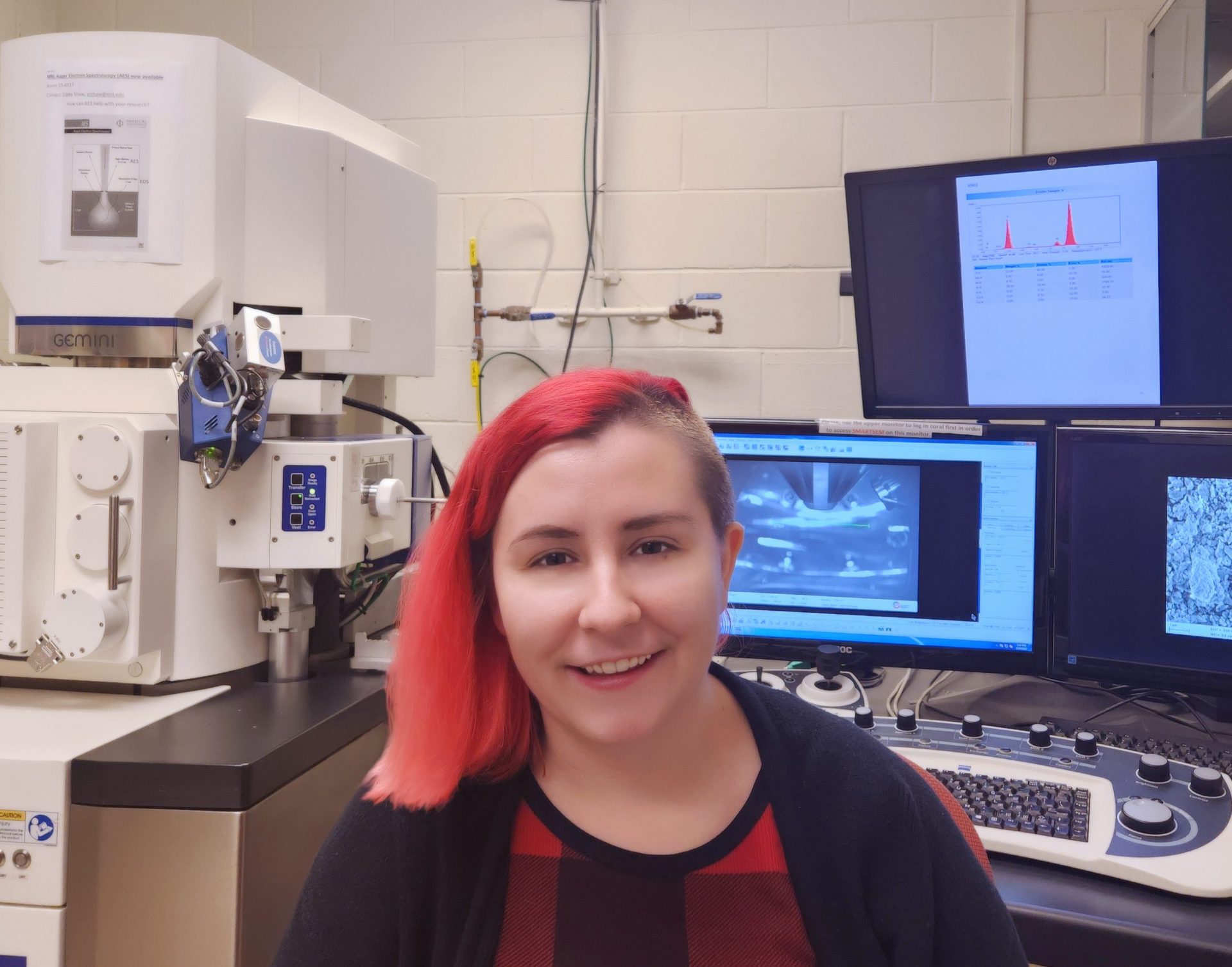Mollie Wilkinson: Graduate Spotlight

MEng student Mollie Wilkinson seeks to combat climate change through methane research
Mollie Wilkinson first became interested in methane removal during her undergraduate studies in the MIT Department of Materials Science and Engineering. Wilkinson was inspired to leverage her background as a materials scientist towards combating climate change after taking a class with Desirée Plata, Associate Professor of Civil and Environmental Engineering, called Design for Sustainable Polymer Systems. Wilkinson was impressed by Plata’s practical approach to tackling real-world problems and was struck by the potential for impact at scale of her methane removal project.
In recent years, there has been a shift among climate scientists and policy makers that has led to a new focus on reducing methane emissions rather than just carbon dioxide. “Methane is the second most abundant greenhouse gas, and it’s more powerful than carbon dioxide,” Wilkinson says. “It’s shorter lived in the atmosphere, but while it’s around it causes more warming, faster, than an equivalent mass of carbon dioxide.”
Wilkinson’s research now focuses on optimizing the Plata Lab’s methane removal catalyst. By using materials characterization techniques learned from her undergraduate experience, she assesses the stability of the catalyst under thermal stress after applying extended-duration heat treatments. This simulates the conditions the catalyst might experience in real-world deployment, where the catalyst would need to operate continuously for months at a time.
Methane’s abundance and power, along with recent studies showing that humans are generating more methane emissions than previously thought, make it a great opportunity to combat climate change. Plata notes, “Reducing methane emissions 45% by 2030 would decrease the rate of global warming in our lifetime, saving a full 0.5oC by 2100. That translates to a real difference in the lived experience of people and ecosystems globally. The international community is mobilizing to help make this a reality, and Mollie’s technology could be a critical part of that effort.”
Wilkinson recalls being particularly excited by the Plata Lab’s methane removal project because of its unique ability to work at lower methane concentrations and lower temperatures than any methane removal project seen before. “There’s a lot of energy and optimism in the lab towards researching and eventually deploying this technology, and I’m really hopeful that it will have a significant impact on climate change,” she says.
While methane removal is her current research focus, Mollie has an avid interest in history and anthropology. As an undergrad, she was a recipient of the Kelly Douglas Fund, an MIT-funded study abroad. She used the fund as an opportunity to travel to Italy for an archaeological expedition the summer after her freshman year, where she helped uncover the first remains from a burial site dating to the early Middle Ages.
In the future, Mollie plans to use her combined interests in science and society to accelerate startups in the cleantech or sustainability venture capital industries. “Solving climate change requires stronger cooperation between researchers, entrepreneurs, investors, and industry than we’ve ever seen before,” she says. “We need scientists who engage with the economic and practical realities of deploying research, and investors who are experts in the technologies they’re supporting. I want to use the unique perspectives that I’ve developed at MIT to help multidisciplinary startups get the resources they need to scale into something that has real impact.”
Share on Bluesky


